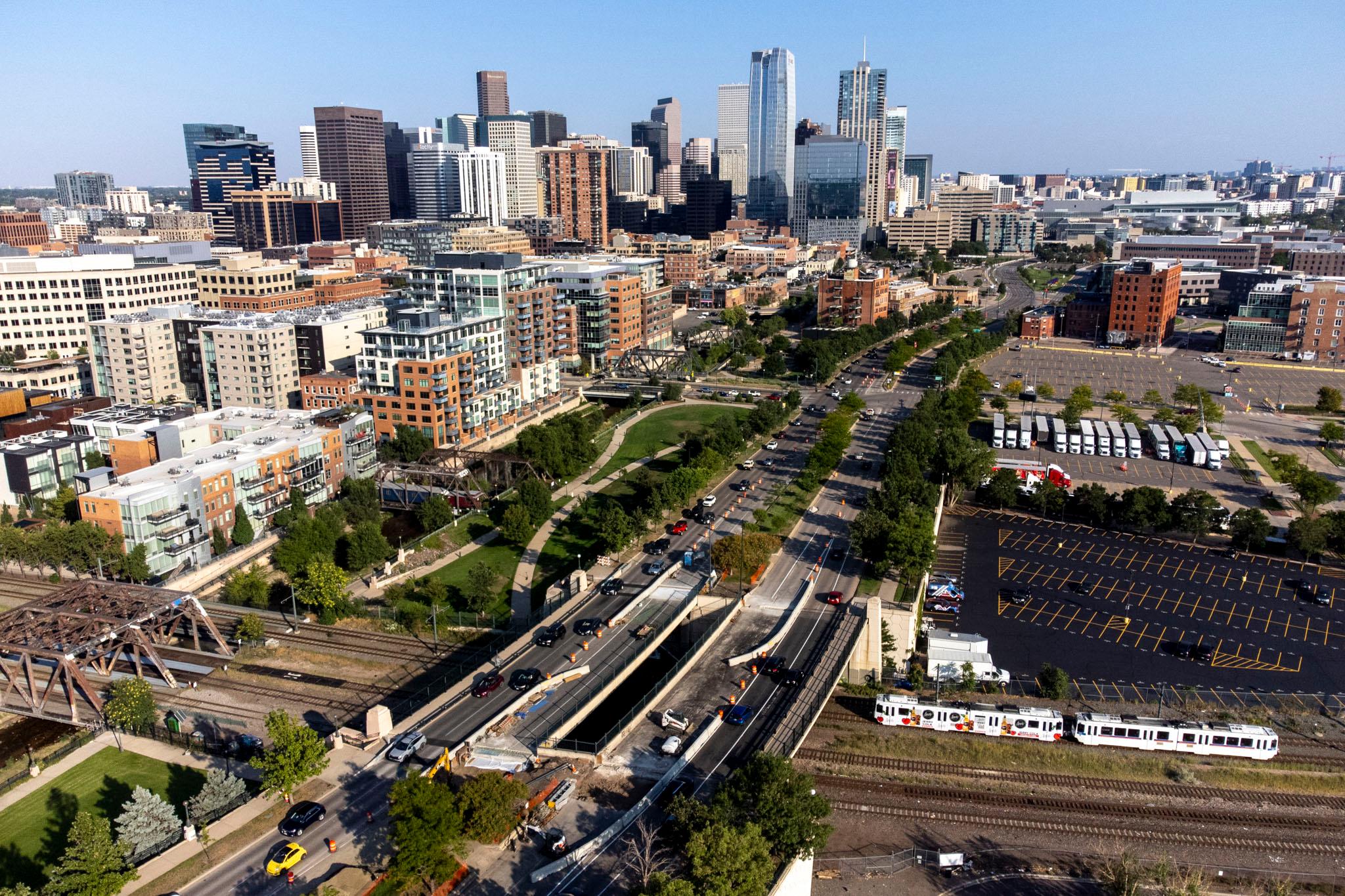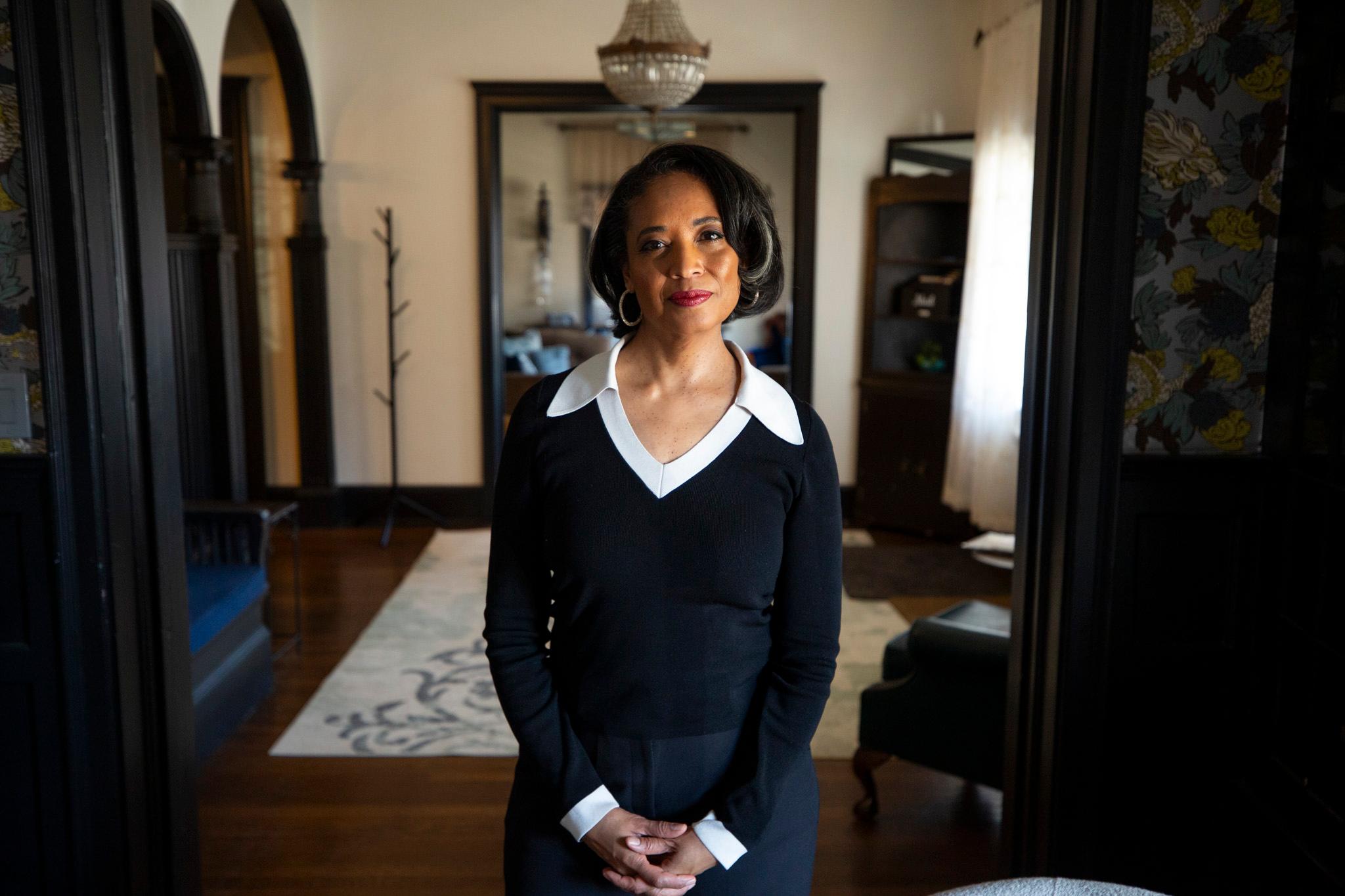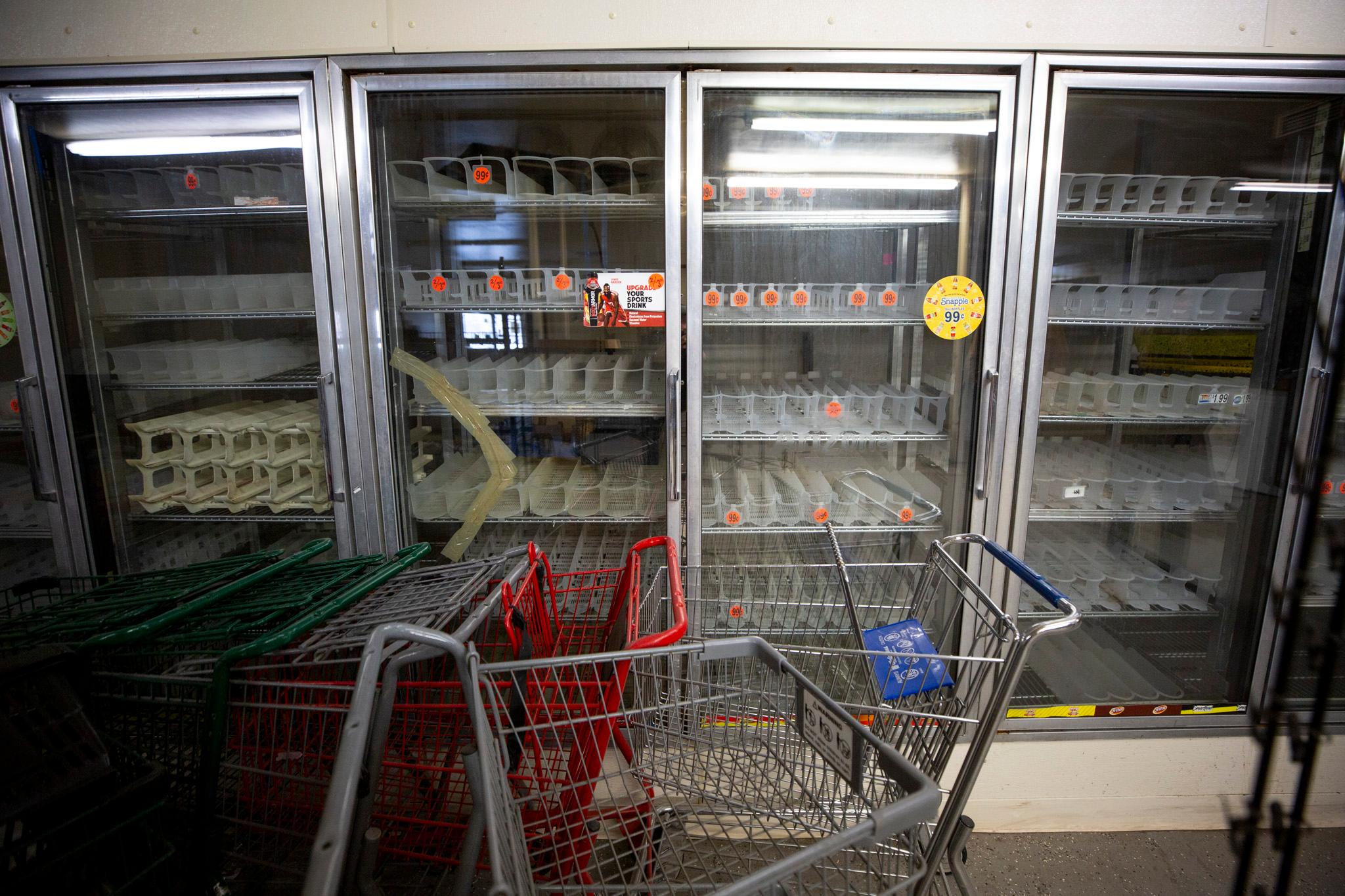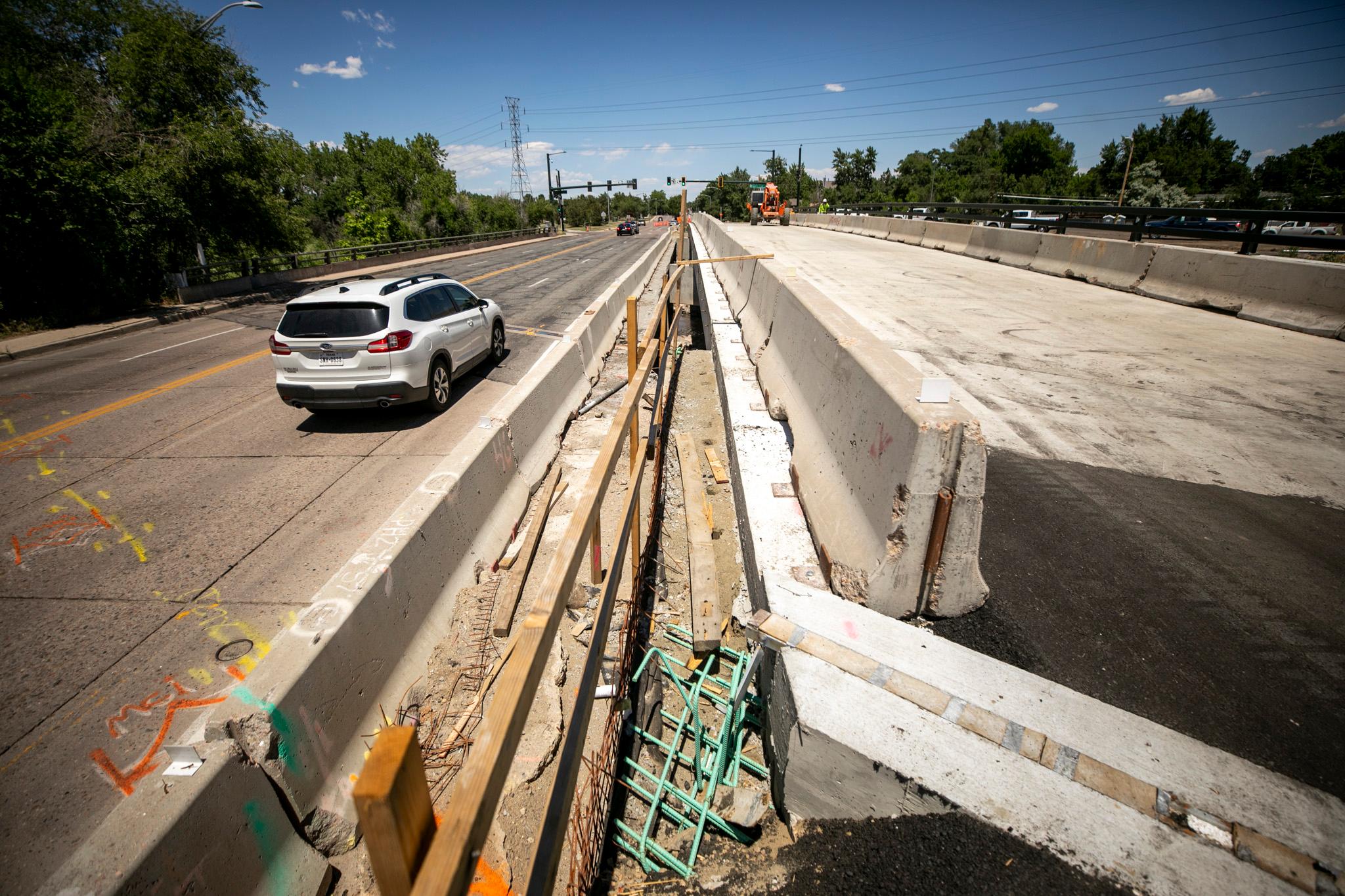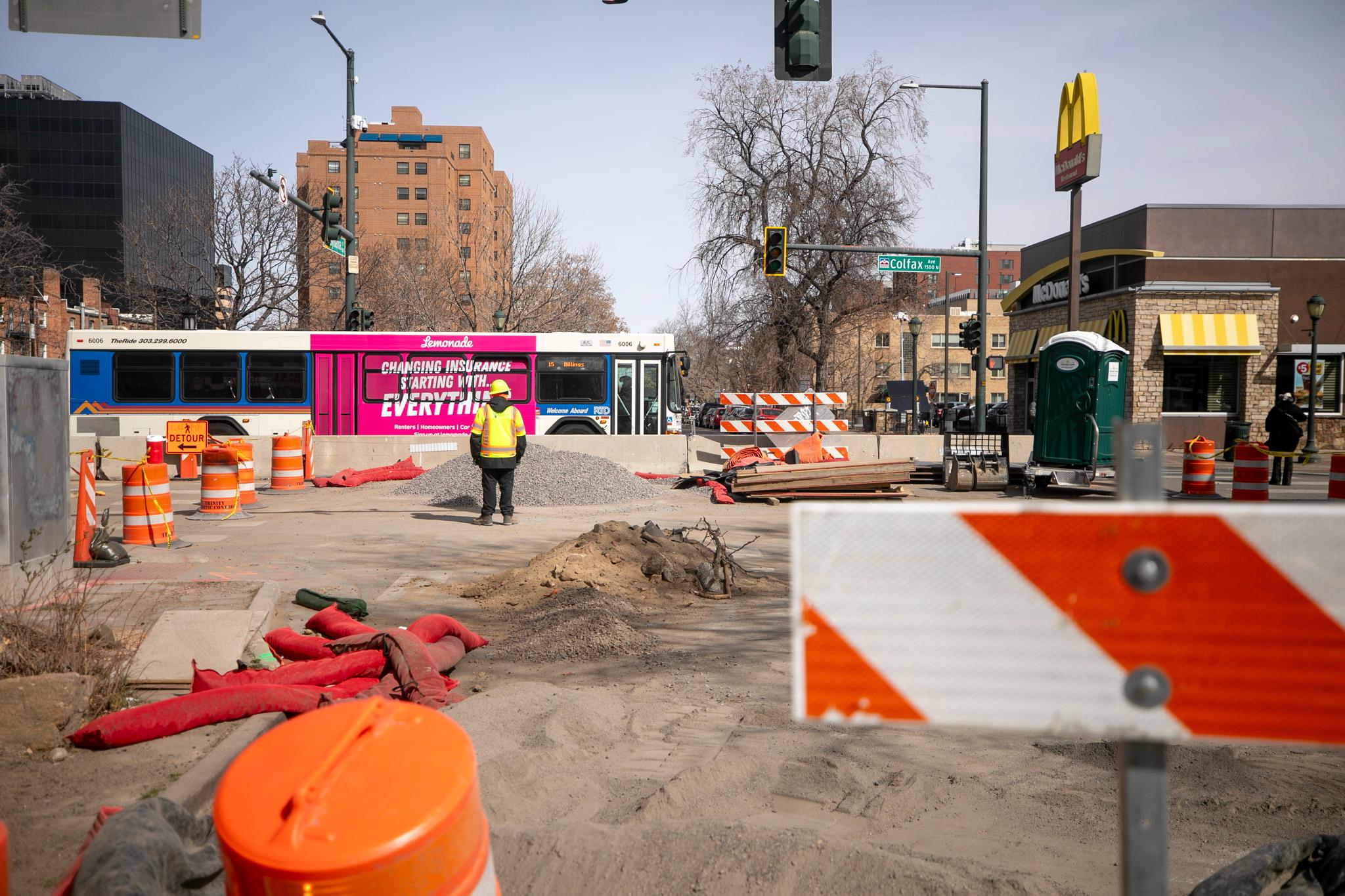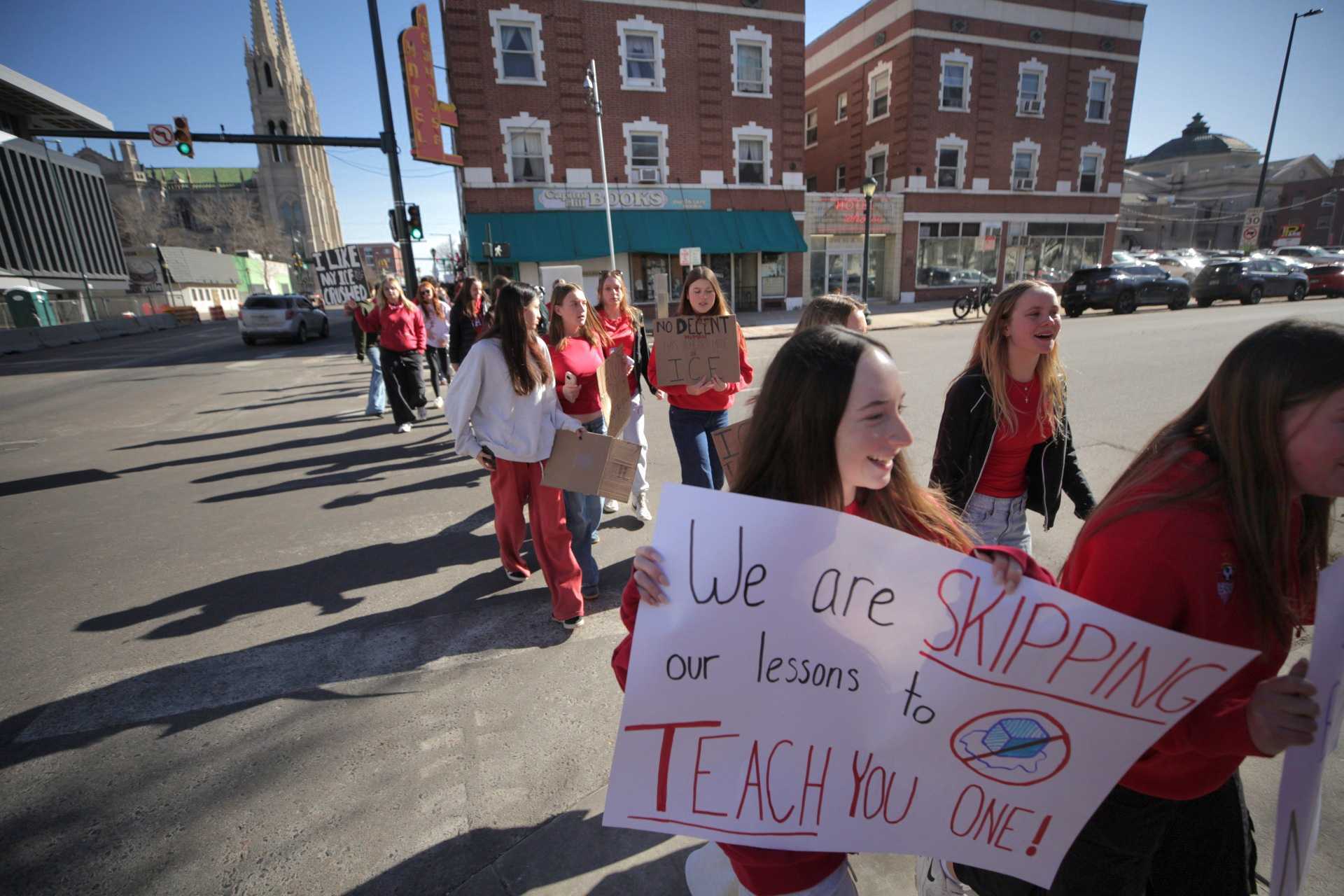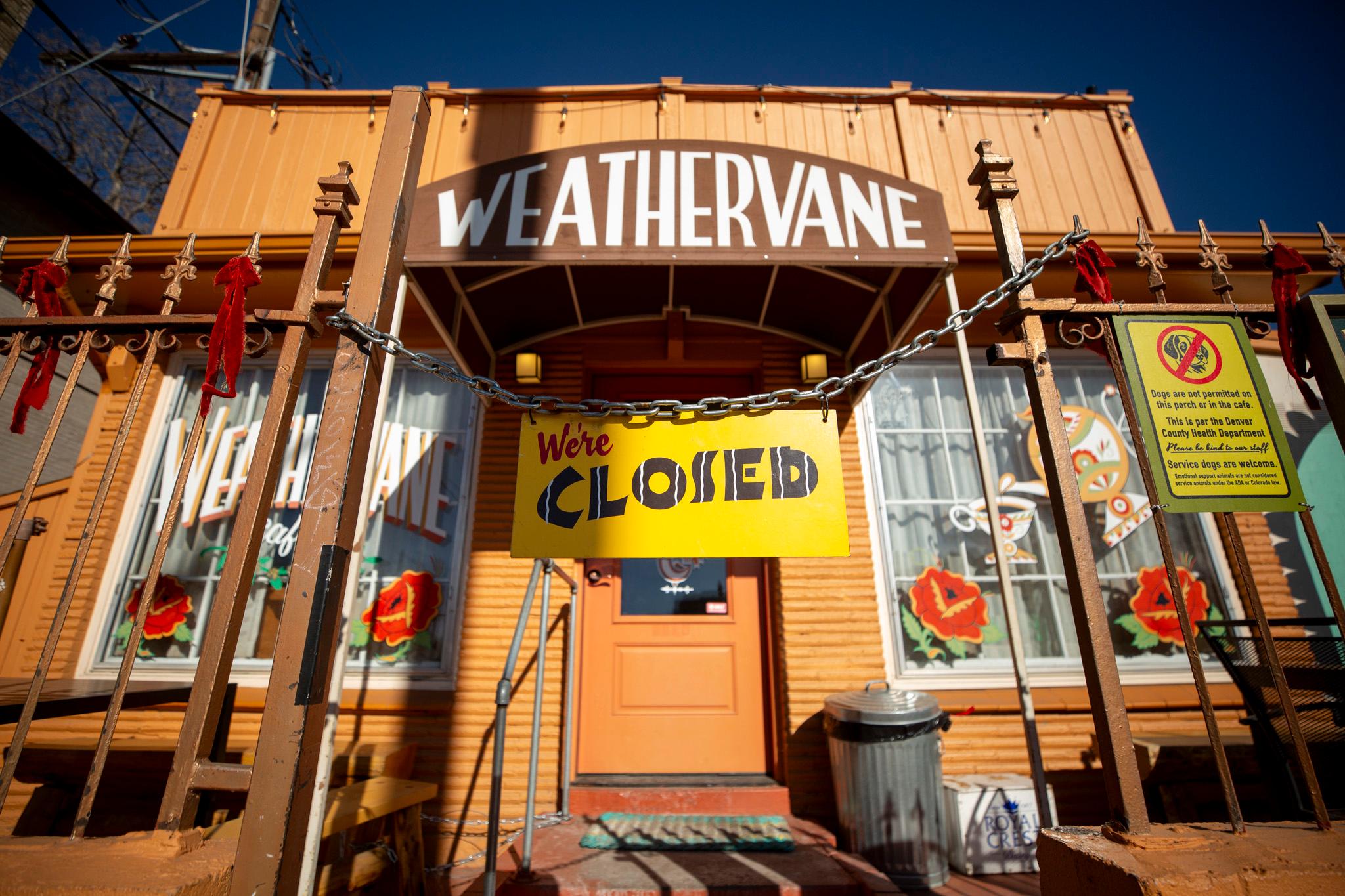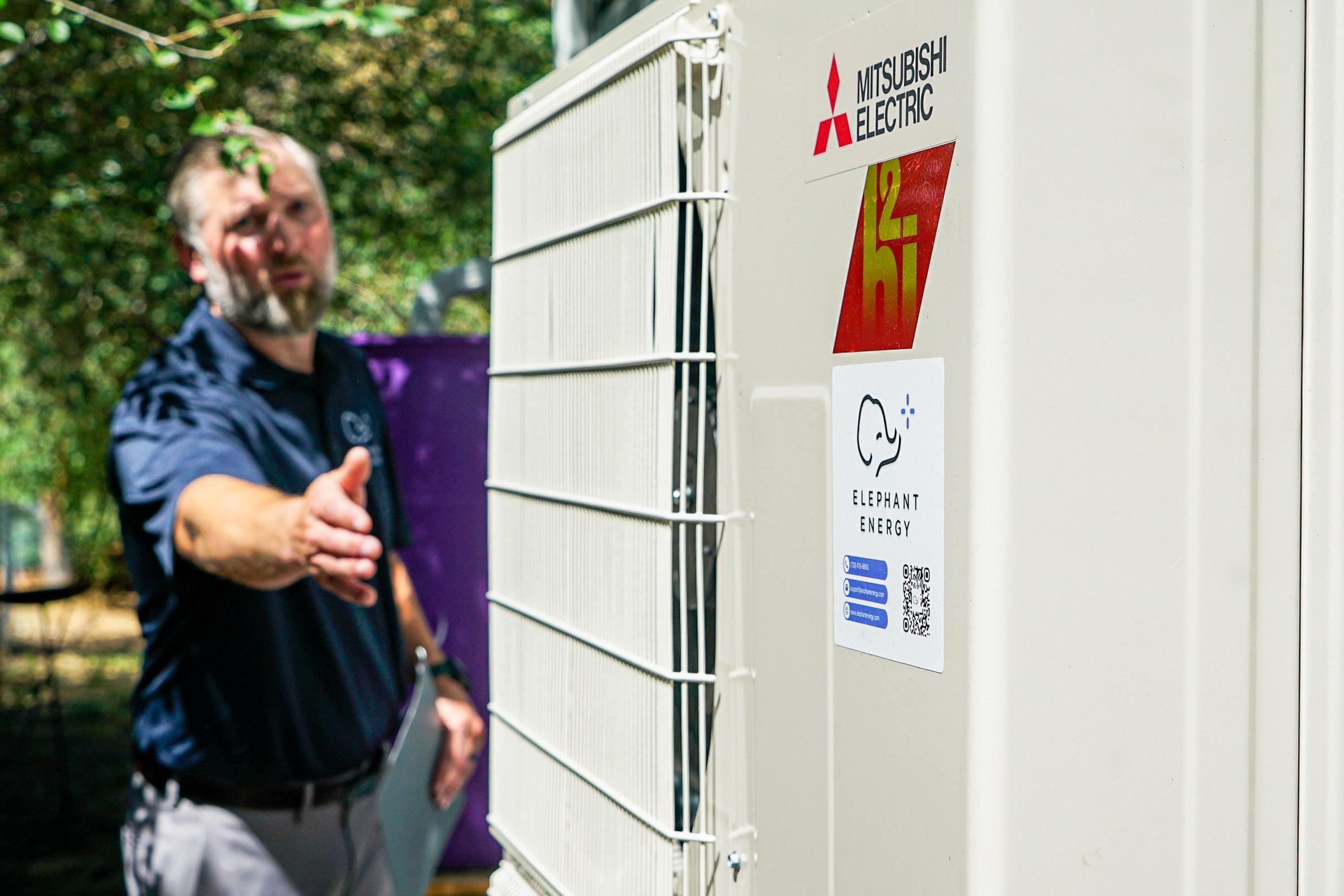
Note for readers: Only some voters will weigh in on Ballot Measure 6A. It is on the ballot for about 2,500 people living around downtown, but not others.
Mayor Mike Johnston and business boosters are looking for money to invest in improvements throughout downtown.
One tool they can use, with voter approval, is the Denver Downtown Development Authority, which collects a portion of money from sales and property taxes in the central business district to be reinvested into economic development in the same area.
When the Denver Downtown Development Authority was passed in 2008, its use was limited to improvements around Union Station. Johnston and the authority want to spread the money further and reinvest it in greater swaths of the city center, and allow the authority to take on additional debt.
If Ballot Measure 6A passes, voters will allow the authority to take on $570 million of debt, with a total repayment cost of up to $847 million with interest. That money would pay for the revitalization of downtown, going far beyond Union Station. The money would be paid off by the revenue collected by the Denver Downtown Development Authority. All this would happen without raising any new taxes.
City Council referred this issue to the voters on a 10-0 vote. Three members were absent.
Here’s the language you’ll see on your ballot:
“Without increasing taxes, shall the City and County of Denver (“City”) debt be increased $570,000,000, with a total repayment cost of not more than $847,000,000 (maximum total principal and interest) for use by and on behalf of the Denver Downtown Development Authority (the “DDDA”), for obligations that are subject to TABOR’s election requirements, for the purpose of financing the costs of public facilities and other improvements, such as creating and maintaining public spaces and facilities, infrastructure, and other improvements to public or private property in accordance with the projects described in the DDDA Plan of Development, as it may be restated or amended from time to time; such debt and the interest thereon to be paid from and secured by a pledge of the special fund of the city which shall contain tax increment revenues levied and collected within the boundaries of the DDDA; and shall the city be authorized to pledge the special interest fund of the city and the tax increment revenues collected therein to the repayment of the principal of and interest on obligations that are not subject to TABOR’s election requirements for the purpose of financing public development, as it may be restated or amended from time to time; and shall any debt authorized by this question be evidenced by bonds, loans, advances, or other indebtedness or financial obligations, to be sold in one series or more for a price above or below the principal amount thereof, on terms and conditions, and with such maturities, as permitted by law and as the city may determine, including provisions for the redemption of the debt prior to maturity with or without payment of a premium of not more than 3% of the principal amount so redeemed; and shall the city and the DDDA be authorized to collect, retain and spend the tax increment revenues, the bond proceeds and the investment income thereon as a voter-approved revenue change and exception to the limits which would otherwise apply under Article X, Section 20 of the Colorado Constitution or any other law?”
How would it work?
Mayor Mike Johnston and the Downtown Denver Development Authority have made rebooting downtown a big priority after the pandemic. For that to work, they say the city needs money. But Johnston, who is already pushing other efforts to raise taxes, decided not to risk asking Denver voters to pay more taxes to revitalize the city center.
Instead, he’s hoping to secure funding for boosting the downtown economy by asking roughly 2,500 voters owning or leasing commercial space and residents around Union Station to allow the city to take on and manage $570 million in debt.
That debt would ultimately be paid off by revenue from the Denver Downtown Development Authority, which is derived from existing taxes. The payment, including both the amount borrowed and interest accrued, could not exceed $847 million. All payments would need to be repaid by the time the Downtown Denver Authority is terminated in 2038.
The measure would not result in higher tax rates for the downtown area, but it would create an obligation funded by current taxes.
Currently, the Downtown Denver Development Authority’s money has been used solely around Union Station. Work there is largely complete.
Now, Johnston and the authority hope to expand how the DDDA’s spending authority to an area “generally bounded by Speer Boulevard, Colfax Avenue, Grant Street, 20th Street, and the Consolidated Main Line railway line,” according to a draft of the authority’s new plan.
Proponents say the money could be used to pay for the creation of daycare centers, parks, open space and the conversion of office buildings into housing and other uses.
But the authority’s plan does not specify how the money must be used. Instead, it makes broader recommendations that must be followed based on categories, goals and geography.
That plan has been approved by the planning board, but it will not be heard in the city council's Finance and Governance Committee until after the election on Nov. 19.
Who’s for it?
Mayor Mike Johnston, the board of the Downtown Denver Development Authority and the Downtown Denver Partnership have all come out in favor of the city taking on new debt.
Here’s how one backer put it in the city’s voter guide: “These investments will help revitalize and transform downtown by converting vacant office spaces, adding parks and public spaces for people to gather, and other amenities that will benefit all the people who live, work and visit downtown.”
Supporters argue downtown Denver’s economy was hit hard by COVID-19 and that this measure would help with recovery.
No money had been raised in support of this measure as of Sept. 30.
The measure had unanimous support from the City Council members who voted.
Who’s against it?
No entities have formally opposed Ballot Issue 6A.

